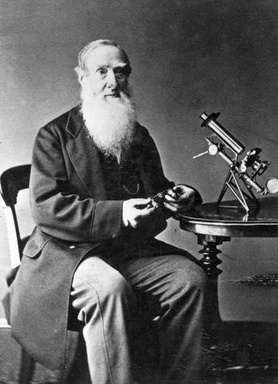Charles Brooke (surgeon) facts for kids
Charles Brooke (born June 30, 1804 – died May 17, 1879) was a talented English surgeon and inventor. He was known for his smart ideas and for creating useful tools for science. He was also a member of important groups like the Royal Society.
A Doctor's Life
Charles Brooke was born in 1804. His father, Henry James Brooke, was famous for studying minerals. Charles went to Rugby School and then to St John's College, Cambridge for five years. He studied medicine at St. Bartholomew's Hospital and became a surgeon in 1834. Later, he worked at the Metropolitan Free Hospital and the Westminster Hospital.
Brooke invented something very important for surgery called the bead suture. This was a special way to close deep wounds, making operations safer and better. In 1847, he became a Fellow of the Royal Society, which is a big honor for scientists. He was also involved with the Royal Meteorological Society (which studies weather) and the Royal Microscopical Society (which studies tiny things).
Smart Inventions
Charles Brooke loved to invent and improve scientific tools. He was especially good at creating self-recording instruments. These were machines that could automatically measure things and write down the results.
He also worked on microscopes. He found ways to make it easier to move the lenses and to light up the tiny things being observed. This helped scientists see details more clearly. Brooke is also known for his work on a science book called Elements of Natural Philosophy. He updated and rewrote several editions of this book, making it a popular guide to physics.
Automatic Science Records
Between 1846 and 1852, Charles Brooke invented amazing self-recording instruments. Imagine a machine that could measure the weather or Earth's magnetism all by itself! His inventions used a light source, mirrors, and special photographic paper. A clockwork drum would slowly turn the paper, and the light would "draw" the measurements onto it.
These instruments could record changes in barometers (which measure air pressure), thermometers (which measure temperature), and magnetometers (which measure magnetic fields). His inventions were so good that they won an award from the British Admiralty and a medal at the Great Exhibition.
Brooke's self-recording tools were used at important places like the Royal Observatories in Greenwich, England, and Paris, France. Later, similar machines based on his designs were built in the United States. Another scientist, Francis Ronalds, also invented a similar system that was used in many observatories around the world to help with weather forecasting.
Later Life
Charles Brooke passed away in Weymouth on May 17, 1879.
His Writings
Charles Brooke wrote and edited several books and papers, including:
- Elements of Natural Philosophy, he edited and rewrote this science book.
- The Evidence afforded by the Order and Adaptations in Nature to the Existence of a God. A Christian Evidence lecture, 1872.
- A Synopsis of the Principal Formulæ and Results of Pure Mathematics, 1829.
- You can find more of his works online:
- Books by Charles Brooke available in the Internet Archive
- Books by Charles Brooke available in Google Books
- Papers by Charles Brooke available in Google Scholar
 | Valerie Thomas |
 | Frederick McKinley Jones |
 | George Edward Alcorn Jr. |
 | Thomas Mensah |


